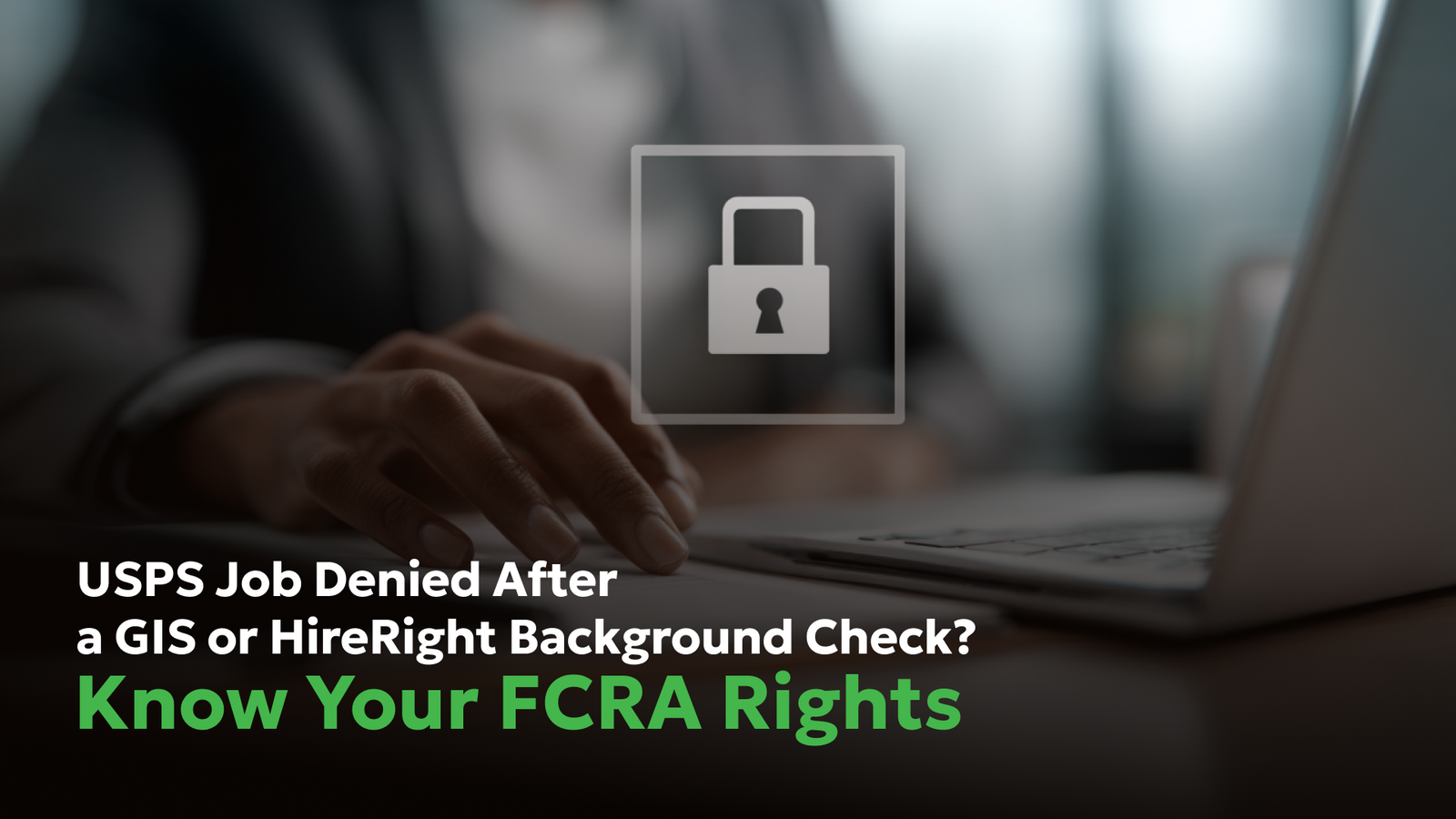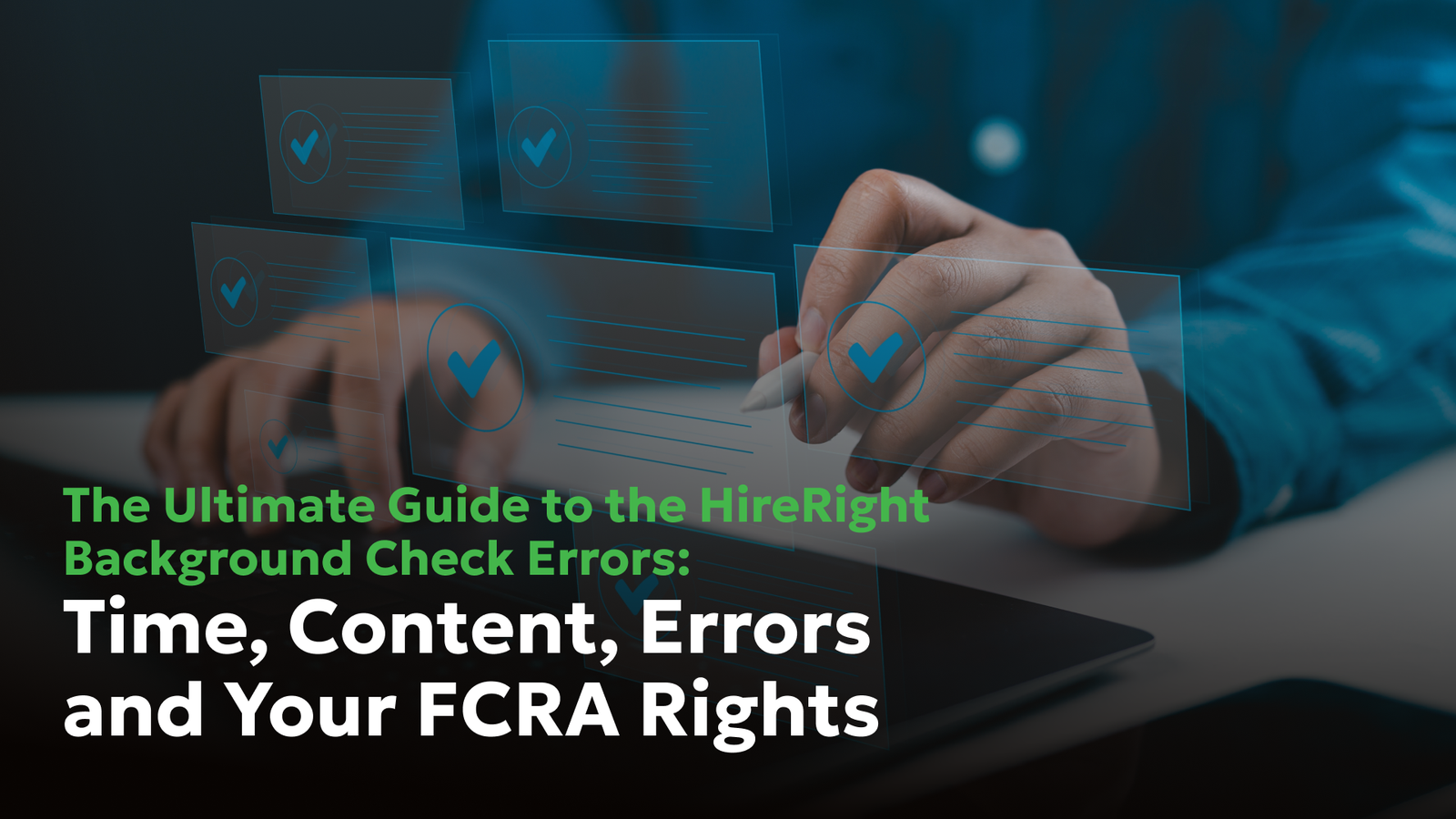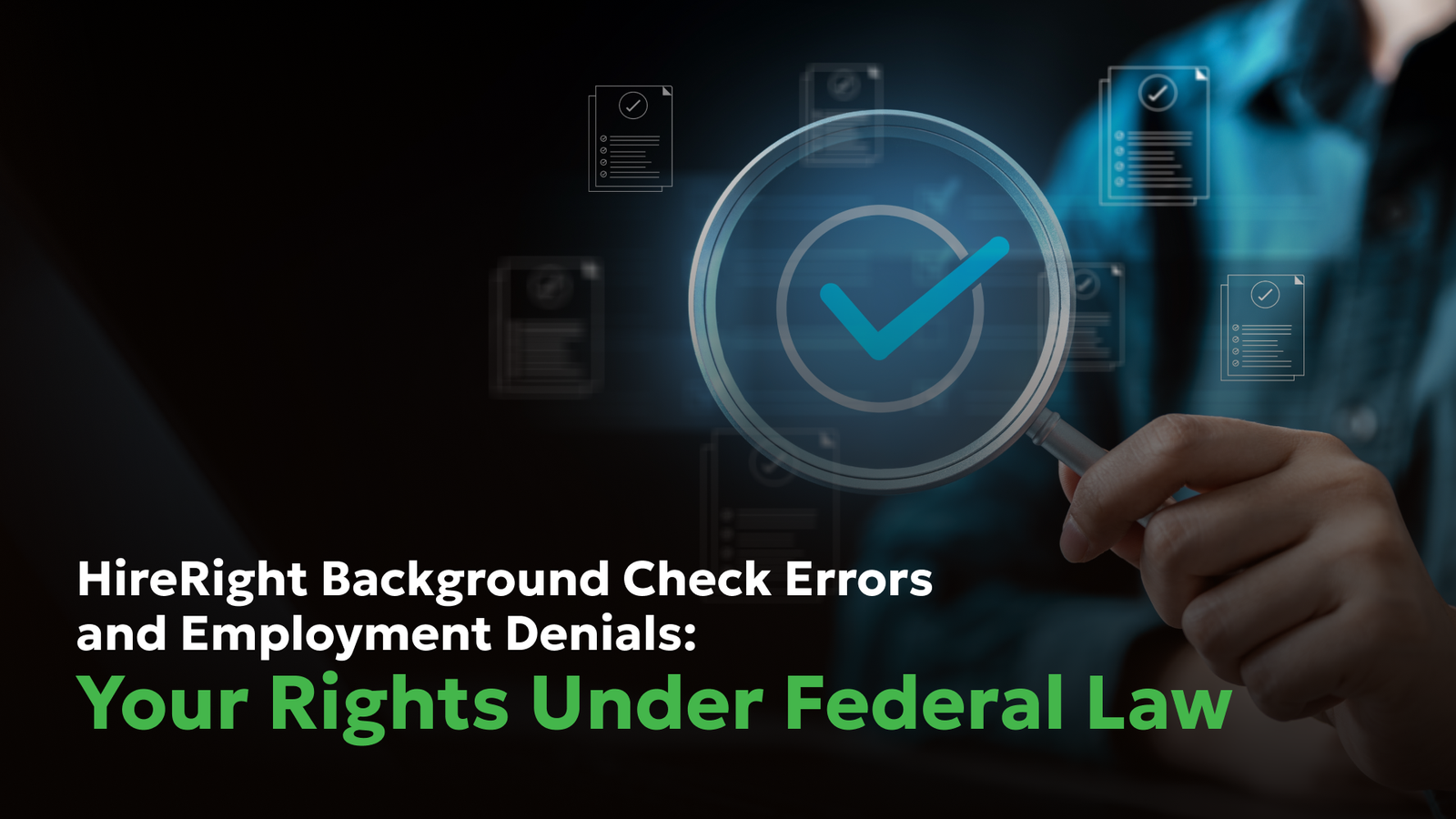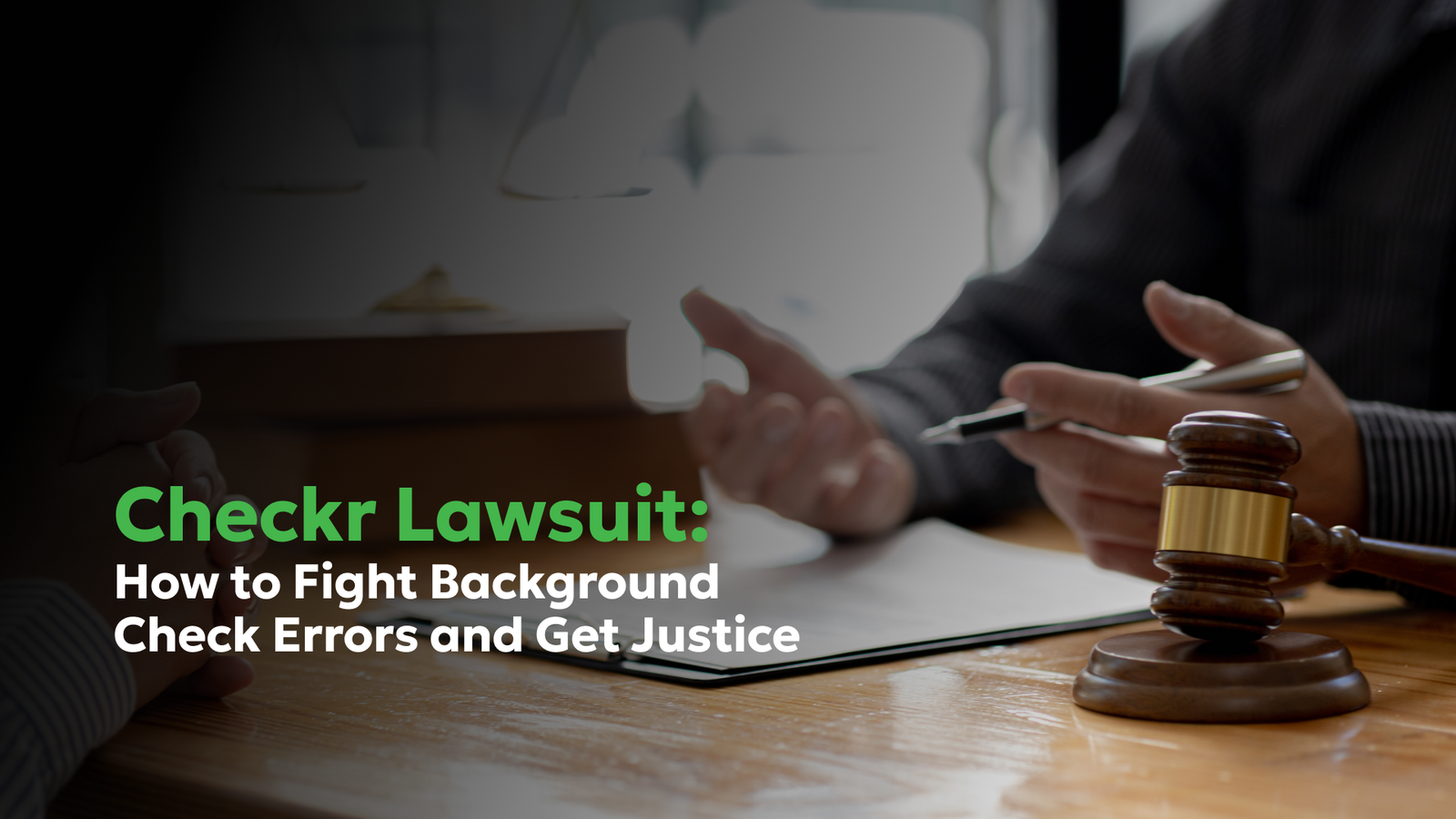Employment Background Check Errors
- Blog
Employment Background Check Errors
categories

17 Feb, 2026
Daniel Cohen
USPS Job Denied After a GIS or HireRight Background Check? Know Your FCRA Rights
USPS background checks involve multiple screening layers, including GIS and HireRight. This article explains how errors occur, why qualified applicants are denied, and what federal law requires when inaccurate reporting blocks employment.
4678
3 min

13 Feb, 2026
Daniel Cohen
The Ultimate Guide to the HireRight Background Check Errors: Time, Content and Your FCRA Rights
HireRight background checks can quietly delay or derail job offers. This guide explains what HireRight checks, why errors happen, how long reports take, and what the FCRA requires when the information is wrong.
2993
5 min

12 Feb, 2026
Daniel Cohen
Airbnb Account Gone Overnight? Welcome to Automated Safety Screening
Airbnb safety screening operates continuously, often relying on third-party background check data. This article explains why accounts are suddenly restricted, how screening errors occur, and what legal remedies exist when inaccurate information triggers a denial.
8
12 min

11 Feb, 2026
Daniel Cohen
HireRight Background Check Errors and Employment Denials: Your Rights Under Federal Law
Losing a job because of a HireRight background check error isn’t just frustrating. This article explains when inaccurate reporting becomes a legal violation, what damages may be recoverable, and how the Fair Credit Reporting Act applies.
13476
5 min

27 Jan, 2026
David Pinkhasov
AI Bias in Background Checks: Avoiding Discrimination Under Title VII and ADA
Artificial intelligence promises speed and scale in recruiting. But the same automated decision systems that rank résumés, score background checks, or verify identities can also replicate old prejudices – or introduce new ones – if they’re trained on skewed data or operate as opaque “black boxes.”
111
5 min

22 Jan, 2026
Daniel Cohen
DoorDash Background Checks: How the System Works, Where It Fails, and What You Can Do About It
Denied, delayed, or stuck in “consider” during your DoorDash background check? This guide explains how the screening process works, the errors that derail drivers, and the exact steps to fix wrong information and get back on the road.
29
15 min

22 Jan, 2026
Daniel Cohen
Checkr Lawsuit: How to Fight Background Check Errors and Get Justice
Checkr background check mistakes can cost you your job. Find out how to fight back, correct errors, and claim compensation under federal law.
2740
14 min

22 Jan, 2026
Daniel Cohen
Lyft Background Checks Explained: Eligibility, Errors, and Next Steps
Wrongly disqualified by Lyft? Learn what really counts as a Lyft background check disqualifier, why errors happen, and how to challenge a bad decision at no out-of-pocket cost.
1703
3 min

20 Jan, 2026
Daniel Cohen
Amazon Flex Background Check Errors: When the Algorithm Doesn’t Deliver
Amazon Flex background check errors are common and can unfairly block drivers from working. This guide explains why checks fail, how to dispute inaccurate reports, and what legal rights protect you when the system gets it wrong.
3641
6 min

20 Jan, 2026
Meir Rubinov
Spark Driver Account Deactivated: What Really Happens, Why It Happens, and How to Get Back On the Road
Deactivated by Spark without warning? This guide explains why it happens, how to fix background check mistakes, and what your rights are under the FCRA.
3612
2 min

20 Jan, 2026
Daniel Cohen
How Lyft Background Checks Actually Work
Get a clear, driver-focused guide to Lyft background checks: how they work, why delays and errors happen, and what to do if a mistake costs you work. Learn how to dispute false information and protect your rights under the FCRA.
444
11 min

16 Jan, 2026
Moshe Boroosan
Lyft Background Check Requirements: What’s Reviewed and How to Fix Mistakes
Lyft reviews your driving history, criminal record, and identity data, but screening errors are common. This guide explains what Lyft looks for, why mistakes happen, and how to fix a wrong background check with no out-of-pocket cost.
2672
6 min
Contact Us
RIGHTS END
W
R
ONGS™Free Consultation
Zero Costs and Fees to You.
You pay nothing. The law makes them pay.
You pay nothing. The law makes them pay.
Contact Us
Head Office NY
68-29 Main Street, Flushing, NY 11367
Office
706 East Bell Rd., Suite 114, Phoenix, AZ 85022


